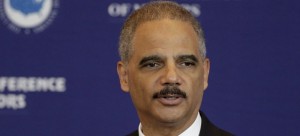
How does one define legacy? Is it a mathematical question of success and failures? Because if so, you may find that Eric Holder’s won’t be too positive. He’ll end up going down in history as an outspoken, but unsuccessful, Attorney General. His civil rights ideologies, while agreeable, lacked any sort of significant execution, and, as an Attorney General, his basic job was to protect rights and laws that will enhance the rights of citizens, which Eric Holder was unable to do.
Consider the Trayvon Martin case: the frustration that raged through the nation afterwards should have incited a court appeal from the government, a thorough investigation of what happened, an examination of what legal rights George Zimmerman actually had, and a thorough investigation regarding if the “Stand Your Ground” law in Florida applied to this case. While the Department of Justice’s case is still “open,” as of Aug. 20, 2014. The Orlando Sentinel has reported that it is so stagnant that Zimmerman’s immediate family was under the assumption it was closed.
Talk is cheap, Mr. Holder.
Then there were the banking industry trials, most notably against JP Morgan. The trial, which was orchestrated by Holder himself, lacked significant results. During testimonies, the executives of these banks admitted to overstating the quality of the mortgages they were selling, as well as other banking malpractices. Their punishment? A $13 billion settlement. While an unprecedented number by all means, they were merely a blip in the books of JP Morgan, especially considering they have over $2.5 trillion in assets.
Furthermore, Forbes notes that none of the executives paid a cent; the money all came from shareholders. The settlement was so mild that JP Morgan’s stock rose .7 percent the day after it was announced, according to Reuters. These executives could have been further investigated and eventually found guilty of crimes, but the Department of Justice was hesitant to do so because “The size of some of these institutions becomes so large that it does become difficult for us to prosecute them,” Holder said during a congressional inquiry. By not holding individuals accountable, Holder only inflated the confidence of these executives and opened the door for further malpractice.
Most recently, we saw unrest in Ferguson, Missouri after the tragic shooting of unarmed black teen, Michael Brown. While the shooting deserves an investigation, there was something much larger worth addressing. Protestors were consistently bombarded with tear gas and sound cannons when peacefully assembling, members of the press were arrested for merely being on the wrong side of the street when capturing pictures of the protest and a TV camera crew had tear gas thrown at them when they were merely setting up their cameras. But rather than investigate the police who ignored basic amendment rights, Holder merely made the case about disproportionate policing of minorities. Luckily, the ACLU took up the cause where a judge ruled that the police flagrantly violated constitutional rights.
Holder was not without some success though. He did reduce the mandatory minimums for drug offenses, which were — quietly — aimed at incarcerating minorities. Due to this push, and his outspoken nature on the issue, the amount of federal prisoners have fallen 10 percent since he took office. He also championed equal rights for gays and lesbians, playing a lead role in the Supreme Court striking down the Defense of Marriage act, and convicted BP of environmental crimes through 11 felony manslaughter charges, forcing them to pay $4 billion.
But, when you look at the big picture, you see an Attorney General that was tough with words, but weak with action. Holder spent much more time following his own agenda rather than protecting the rights of the overall population. Only when there was massive public outcry would he set his sights on popular opinion. If talk is cheap, then Holder is a penny pincher.
